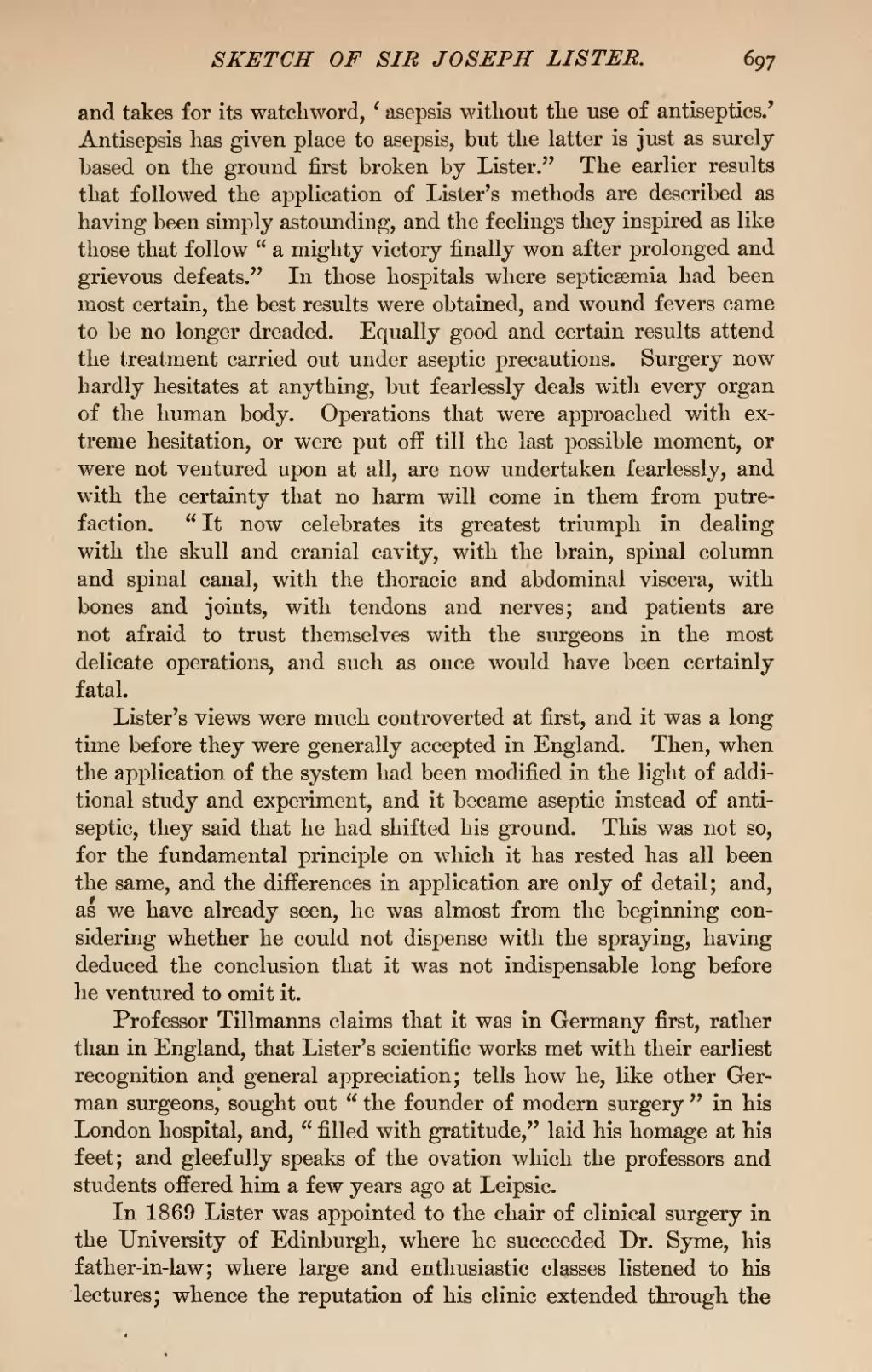and takes for its watchword, 'asepsis without the use of antiseptics.' Antisepsis has given place to asepsis, but the latter is just as surely based on the ground first broken by Lister." The earlier results that followed the application of Lister's methods are described as having been simply astounding, and the feelings they inspired as like those that follow "a mighty victory finally won after prolonged and grievous defeats." In those hospitals where septicæmia had been most certain, the best results were obtained, and wound fevers came to be no longer dreaded. Equally good and certain results attend the treatment carried out under aseptic precautions. Surgery now hardly hesitates at anything, but fearlessly deals with every organ of the human body. Operations that were approached with extreme hesitation, or were put off till the last possible moment, or were not ventured upon at all, are now undertaken fearlessly, and with the certainty that no harm will come in them from putrefaction. "It now celebrates its greatest triumph in dealing with the skull and cranial cavity, with the brain, spinal column and spinal canal, with the thoracic and abdominal viscera, with bones and joints, with tendons and nerves; and patients are not afraid to trust themselves with the surgeons in the most delicate operations, and such as once would have been certainly fatal.
Lister's views were much controverted at first, and it was a long time before they were generally accepted in England. Then, when the application of the system had been modified in the light of additional study and experiment, and it became aseptic instead of antiseptic, they said that he had shifted his ground. This was not so, for the fundamental principle on which it has rested has all been the same, and the differences in application are only of detail; and, as we have already seen, he was almost from the beginning considering whether he could not dispense with the spraying, having deduced the conclusion that it was not indispensable long before he ventured to omit it.
Professor Tillmanns claims that it was in Germany first, rather than in England, that Lister's scientific works met with their earliest recognition and general appreciation; tells how he, like other German surgeons, sought out "the founder of modern surgery" in his London hospital, and, "filled with gratitude," laid his homage at his feet; and gleefully speaks of the ovation which the professors and students offered him a few years ago at Leipsic.
In 1869 Lister was appointed to the chair of clinical surgery in the University of Edinburgh, where he succeeded Dr. Syme, his father-in-law; where large and enthusiastic classes listened to his lectures; whence the reputation of his clinic extended through the

